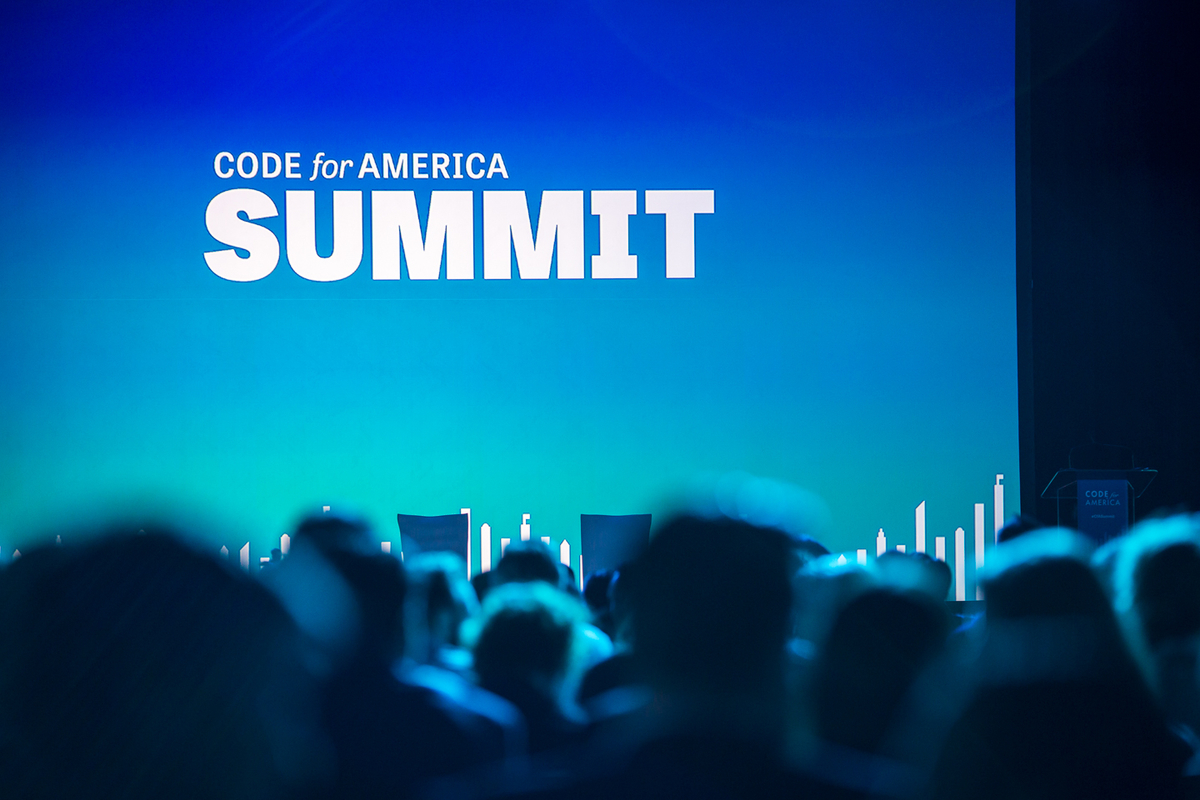
Code for America met this week at its annual Code for America Summit to discuss how best to work with government organizations, how to propose solutions for civic problems, and perhaps most importantly, how to fix civic software procurement.
Have you ever seen a government software contract? They take years to obtain, months to sign, and weeks to understand. The software they typically cover is almost always ancient, poorly supported, and takes additional years to implement. Code for America, while ostensibly about developers programming to help government, is tackling this problem as well.
(Related: Other ways software developers are benefitting cities through software)
Founded in 2009, this non-partisan, non-profit organization has been encouraging coders to help their civic institutions through hackathons and the formation of “programmer brigades.” These brigades are often tasked with solving problems for the cities they work in.
One example was a team that helped in New Orleans after Hurricane Katrina. New Orleans was packed with potentially abandoned and ruined homes. It took the city weeks of hand-searching to determine the status of any given home.
The city contacted a government software firm and got a bid back for a system to automate status lookups: three years and millions of dollars. The New Orleans brigade of Code for America took up the charge and built a working application in months, for free.
But that’s what happens when the stakeholders in a city are able to solve its problems with their own blood, sweat and tears, rather than relying on a large contracting firm to handle it.
Not a typical software non-profit
It was 11 years ago when I first interviewed Nicole Neditch for Oakland Magazine. At the time, she and friend Jen Loy had just opened a coffee shop called Mama Buzz on Oakland’s Telegraph Avenue. It was 2004, and their stretch of the avenue was coated in abandoned buildings, a supermarket, and liquor stores. Within the year, Loy and Neditch had built their coffee shop into a hipster island, and they’d begun a First Friday art crawl known as the Oakland Art Murmur.
Fast-forward 10 years, and the work of Loy and Neditch has single-handedly transformed Uptown Oakland. With pioneering bar owner Peter Van Kleef (who will be honored with a statue will by the mayor, evidently) working the other end of Telegraph, Uptown Oakland is now a destination for bars, high-class restaurants, and shows. Grace Jones played the Fox Theater last week, and The New York Times declared Oakland No. 2 in its top cities to visit in 2012.
For a time, Neditch worked for the City of Oakland, helping it deal with artists and the burgeoning Art Murmur, now so large it closes off the Telegraph Avenue entirely. But Neditch is no longer working for just Oakland.
As senior director of government practices at Code for America, Neditch now puts her expertise in building communities to use for the entire country. Working with coders is certainly different from working with artists. But Neditch has already figured out where the pain points are for cities when it comes to dealing with software.
“A lot of the practices that are coming out of the work are based around how you evaluate technology,” said Neditch. “That knowledge has to be embedded in government. One of the big things we push—and we’re excited about and we’re starting to see more and more—is more people who really understand technology going in and working with government. I think Oakland is looking for a new CIO: Someone who has forward-thinking digital leadership skills. It takes having those types of people in government to evaluate a system.
“Governments, when they are evaluating technology, they have to evaluate it in a way that works for everyone. A lot of times—and we saw a lot of examples of this in the Summit—the default has been, ‘Let’s produce things on paper, then let’s convert it to digital, or not convert it at all.’ I think we’re starting to see more and more governments shift to thinking about the digital-first perspective. Actually, in this day and age, it is more accessible to make things digital first and then print things when it’s necessary.”
Neditch said one of the ways to fix the procurement process is to break down the requirements into an iterative process. “If we start to break things up by need, we start to break down that process and start building technology in an iterative way, [and] we can do the work of procuring tech in an iterative way,” she said.
Oakland’s mayor, Libby Schaaf, keynote speaker for the Summit, said that she wants to use technology to bridge the digital divide. She coined the term “Techquity” to refer to spreading technology around a community equally.
“Techquity is the idea that we can deliver city services in a way that reaches our most vulnerable populations; that we use technology to drive techquity,” she said. “Let’s be honest: Government hasn’t always served people equally, but now we have tools to make that happen.”
Getting started
But how is a Luddite municipality to get started in technology? “On the [Code for America] website, you can find guides on how to start thinking through some of that. What do you need to think about what are you trying to achieve?” said Neditch.
But Code for America also helps to train software developers through its Fellowship programs. Developers, it seems, need to learn how to deal with government, just as government need to learn how to deal with developers.
“One of the things we did with the civic startups is help guide them on how to sell technology to government,” said Neditch. “There are some ways to get your software into government. One of those things is that a lot of governments don’t have credit cards. It was all setup to protect people’s dollars, but that means you have to have a purchase order. A lot of these companies have learned how to navigate those things. We’re seeing more and more of these smaller startups being able to actually sell to government. We’re starting to see that happen as of this year.”






